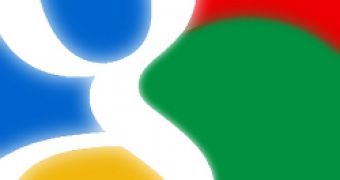Google has pledged to take several measures to fight copyright infringement. These measures, which include faster DMCA takedowns and the removal of terms associated with piracy from search suggestions, will be implemented across Google products, starting with the search engine and Blogger.
"As the web has grown, we have seen a growing number of issues relating to infringing content. We respond expeditiously to requests to remove such content from our services, and have been improving our procedures over time," Kent Walker, General Counsel for Google, wrote.
"But as the web grows, and the number of requests grows with it, we are working to develop new ways to better address the underlying problem. That’s why today we’re announcing four changes that we’ll be implementing over the next several months," he added.
"We’ll act on reliable copyright takedown requests within 24 hours." Google aims to bring down the time it takes for a DMCA (digital millennium copyright act) takedown notice to be resolved.
Google is targeting 24 hours as the average time it should take to respond to a notice from copyright holders. What's more, and this is interesting, the company is saying that it should be less than this for "copyright owners who use the tools responsibly."
Google will also be making it easier to file a counter-notice if you believe you've been accused unfairly.
"We will prevent terms that are closely associated with piracy from appearing in Autocomplete," Google also said. Autocomplete suggests the most popular queries that match what you've typed so far.
For some searches, especially for songs, movies and other heavily pirated content, the suggestions will include words like "bittorrent," "download" and so on.
Google says that it will remove terms that are frequently associated with piracy. That's easier said than done, some terms may be more obvious, like "bittorrent" though even this is debatable, but what about about words like "mp3?"
Most results on the first page for a search for "lady gaga paparazzi mp3" are for less-than-legitimate sites. Amazon.com is only the tenth result and iTunes is nowhere to be seen. But can Google say that "mp3" is "frequently used" to find pirated content and remove it from suggestions?
Google is either underestimating how hard it can be to determine which terms are used for 'pirate searches' and which are legitimate, or will implement broad filters which will affect legitimate searches. Of course, there is also the possibility that Google is just trying to calm content owners and the changes won't be very noticeable.
"We will improve our AdSense anti-piracy review." This is another measure that Google is implementing. The company says it will work harder to boot sites associated with piracy from its advertising programs.
Again, this sounds good on paper, but it should prove hard to put in practice. The question is, just who determines which sites are involved in copyright infringement. Google says it will rely on DMCA takdedowns, but the system has been abused in the past.
"We will experiment to make authorized preview content more readily accessible in search results." This is the final pledge Google is making. At first glance, it looks like a no-brainer but it all depends on how the company will implement this.
The company is saying that ranking will not be affected and it will only make it easier to find the previews, enabling them for the results that it would serve anyway.
Google has been feeling the pressure to step up its game in fighting online piracy and copyright infringement. Yet, its pledges raise more questions than provide answers and it's unclear if the "war" on copyright infringement will be done to the detriment of the user experience in order to please content owners or, alternatively, be ineffective in achieving what copyright holders desire.

 14 DAY TRIAL //
14 DAY TRIAL //